Religions
There are many religions in the world of The Cyborg's Crusade. So many that studying them all would take far too much time. That being said, here is an overview of the major religions still existing in Nirnivia and Ostark.

Hynoism
A polytheistic religion, Hynoism comes from the Brigs, though other races adopted it. It offers many Gods, most of them based on natural concepts. There are two clans of Gods in opposition to each other, the Lights and the Darks. The Lights tend to represent forces seen as positive from the people's perspective. Their leader is Timos, the God of the sun, and their rank includes, amongst other Rosalynds, the Goddess of water, Olsak, the God of Wind, and Nimust, the Goddess of earth. As for the Darks, they are led by Nilhicia, the Goddess of death and include such minions as Produs, the God of pestilence, Stradurns, the Goddess of famine, and Losurok, the God of lightning.
Many temples exist for the different deities and their followers to pray and pay tribute to be granted favors. Which God should be courted depends on the nature of the demand and powers of said God. For instance, if you need wind for your windmill, then Olsak should be your choice, while Timos would be if you wish for either rain or its absence. On some occasions, many Gods can offer their assistance. For example, given a trip to the sea on a sailboat, Timos can prevent torrential rains, Olsak can make the wind blow into a favorable direction, and Rosalynds can grant safe passage through treacherous seas.
Anybody can pray to any God, however, different people have different affinities. The higher the affinity of a person to a particular God, the better the chances of having their favor granted. Affinity is rather complex and is mostly determined by the year, month, day, and hour of birth. Other factors play a role, but the various Hynoism branches tend to disagree on what they actually are.
There is one great taboo in Hynoism and that is praying to a Darks God. As such, they have no official temples, though anyone could, in theory, improvise one and then seek favors from them. Such an act is forbidden and punishable by death.
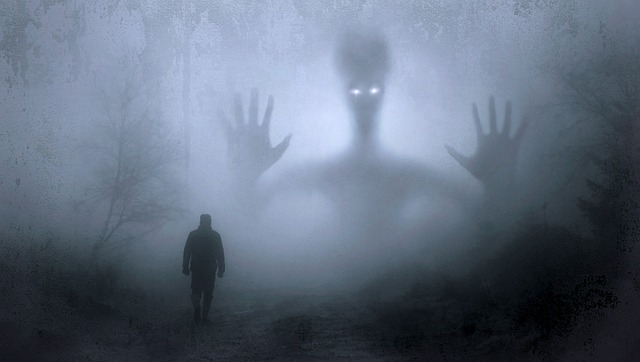
Hynoism Darkus
Where there are taboos, there are those who will break them. In popular culture, to deal with a Darks God is viewed as seeking an evil that will bring harm to others. For instance, having Nilhicia cause instant death to an enemy, or begging Produs to assail a rival clan with disease, or even demand Losuroks to ravage a town through his lightning. Those who dare this path are said to practice Hynoism Darkus.
Even though a few cases of such malicious behavior have been prosecuted, the sad reality is, most occasions where someone turned to Hynoism Darkus lacked any malevolent intent. Instead, they were poor souls pushed into a corner and begging their tormentors to stop their punishment. Requested favor are usually things like bringing back a loved one from the dead, ending a famine, preventing natural disasters, and warding off diseases. Unfair as it may be, the majority of Hynoism Darkus practitioners executed proved to be of this kind rather than their vile brothers in sin.
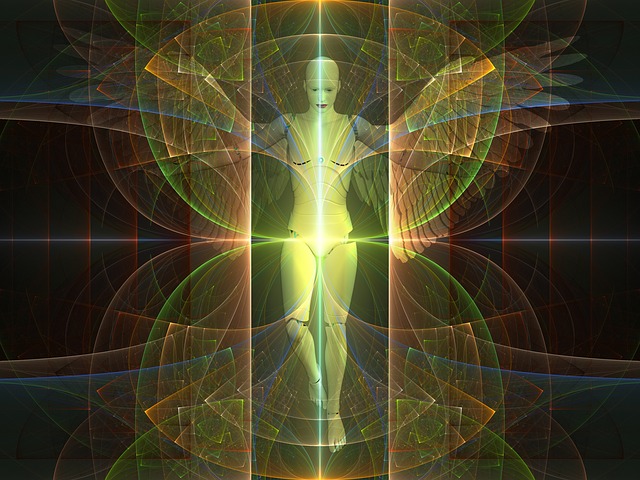
Ulgoronism
Ulgoronism is a monotheist religion that posits the winged God, Ulgoron, created the universe and everything within, including lifeforms. To Ulgoron's horror, one of the many species he created acted erratically (the Gorumars). Though intelligent, they often proved destructive and went against his holy will. Despite this, he saw good in them and so decided not to exterminate them as he first considered. Instead, he created a new world, called the afterlife by mortals, where his true and perfect vision would be realized, leaving the Gorumars behind. Eventually, Ulgoron came to pity some of the Gorumars for they deserved better fates than a life of suffering and then death. Thus, the mighty God decided he would turn his original creation into a test. Those Gorumars who lived a righteous life were granted a rebirth into the afterlife upon death.
Those who follow Ulgoronism believe in reincarnation. In his incredible mercy and wisdom, Ulgoron understood Gorumars learned slowly and so gave them several chances to right their wrongs. If not showing progress through his/her various existences, an individual would cease to exist permanently, a fate known as being banished into nothingness.
The origins of Ulgoronism are unclear. Both Jonilans and Brigs adopted the religion in drove and which society started the practice is widely debated by experts. However, most believe it came from the Jonilans. The fact that Jonilans are protective of their culture is the biggest reason for this. Jonilans, though tolerant of others, are very reluctant to change their ways and adopt new beliefs. They are fervent devotees to tradition. Because of this, many assumed they'd simply reject a Brig religion, yet most Jonilans followed Ulgoronism. This is another point in the Jonilans' favor as a larger proportion of Jonilans followed Ulgoronism:' 88% versus 56% for the Brigs. Another theory is that the religion developed in one of the few countries where there were around equal numbers of Jonilans and Brigs and its creation involved both races. This would explain how both of them adopted Ulgoronism.
While not as popular with the Perz, Ulgoronism still spread in their culture and about 20% of the Perz population identified themselves as Ulgoronites. Due to their isolation, the religion was mostly unknown to the Zargs until the old war.
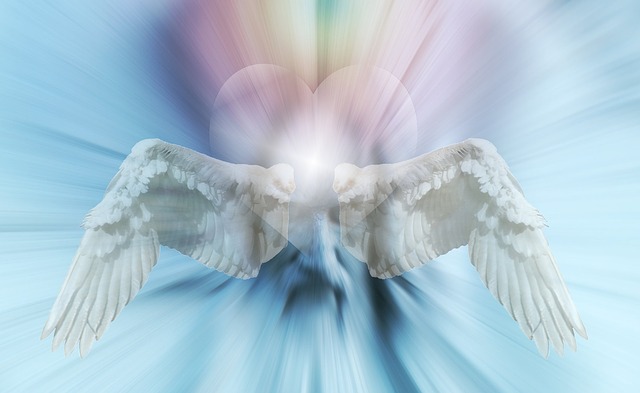
Ulgoronisoism
Ulgoronisoism is an extension of Ulgoronism. The 'ios' added at the end comes from a dead yet influential language and means 'new'. In other words, Ulgoronisoism is a new Ulgoronism. While many of the details concerning the rise of Ulgornisoism are lost to history, the broad strokes are very well-known.
The story of Ulgoronisoism starts with a Jonilan family fleeing their homeland after an enemy attained political power. They escaped to a mainly Brigs country named Alashar. Two years later, they had a little girl with a very unique trait: wings. This event sent ripples through the nation and even the world. No doctor could explain it, but the girl, Misha, seemed perfectly healthy and normal otherwise. Given the fact that Ulgoron, the deity of Ulgoronism, is depicted as a winged creature, many believed the child had been marked by God, though for what purpose no one knew.
The first few years of Misha's life were fairly uneventful, but by the time she was three, she started to make strange predictions and, while not all came true, most did. Rumor has it that she predicted a death or two, warned of an epidemic in the country of Nigstafal which she didn't even know existed, and predicted the result of an election even though the child had no understanding of democracy. They say the three-year-old had no comprehension of her own words or how they came to her mouth. Many later claimed that at age four, she stopped a robbery at a store she happened to be at with her parents. The few witnesses swore she transformed into a being of light and subjugated the criminals. The security camera mysteriously failed just before the event, however, and no physical proof remained. Still, Misha's notoriety grew and, due to her predictions, whispers of her being a prophet spread and those whispers soon grew to a shout.
On her twelfth birthday, Misha made a declaration that changed the world. The youth gained popularity and the media were present to cover the event. It is this way that her shocking revelation spread across the planet. According to her, Ulgoronism was the true religion, but it was incomplete. There was more to the story of Ulgoron, some details escaped the pass saints. Misha declared that the act of creation demanded far more power out of Ulgoron than he expected. As a result, Ulgoron collapsed and split into two lesser Gods: Ulgorack and Timagoron. Each of them had some of Ulgoron's power, knowledge, and wisdom and so each understood facets of their originator's creation, but not the whole. Still, between them, everything made sense, except for one thing: A species that eventually came to call themselves Gorumars. Neither deities understood their purpose nor could confirm they were indeed part of the divine plan. The two decided they'd observe the Gorumars and figure it out from there.
After centuries of watching the Gorumars, Timagoron came to loathe the pain and devastation they brought, not only to the world and other creatures, but to each other. Everything they touched, they defiled. They hunted species to extinction, destroyed forests to build these horrid towns, tainted the purity of nature with pollution, and many other wretched acts. Timagoron had enough: clearly these Gorumars were an unintended consequence of Ulgoron's unexpected division. They needed to be purged for the sake of creation. Ulgorack, on the other hand, admitted the Gorumars' sins but saw a lot of love and good in them also. He concluded the division corrupted them, but they were part of the original design (though, as said before, he couldn't know for sure.). Though many of them deserved annihilation, many more deserved existence.
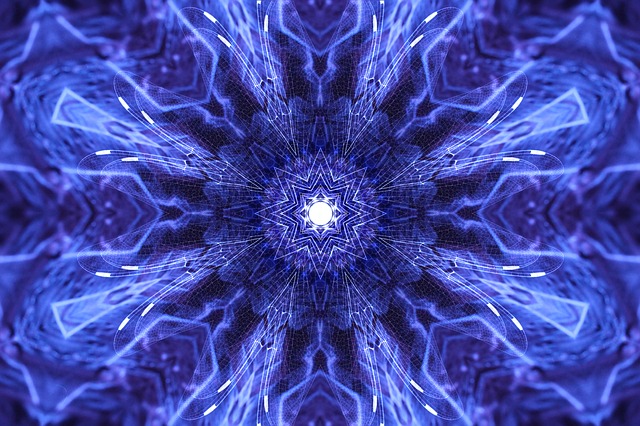
After many debates, Ulgorack and Timagoron failed to reach an agreement on the matter. They turned to fists, but months of battle amounted to nothing. Both were evenly matched. In the end, they came to a compromise. Since the actual creation might be tainted, they would build another world which the Gorumars call the afterlife. Gorumars deemed worthy would be reborn there, those who showed promise were reincarnated into the original world so they'd have a chance to improve, as for those who failed so many times, they were judged unworthy and simply vanished from existence, or as the Gorumars call it: they were banished into nothingness.
These new beliefs spread across the world quickly and through the years, many followers changed their views to reflect them. However, others distrusted Misha and accused her of heresy. Misha's disciples thus split from Ulgoronism and formed Ulgoronisoism. They named Misha the Melkar, the word for prophet in the same dead language that inspired the added 'ois'.
Ulgornisoists were mostly Brigs, since the Jonilans resisted change by nature. That being said, the existence of Misha convinced quite a few Jonilans to change their stance despite their reticence.
Even the Ulgornisoists weren't exactly a united front. Through time, schisms appeared despite Misha's effort to quell them. As a result, different branches of Ulgoronisoism formed. Though they disliked each other, they were united by a common enemy: The Ulgoronists who opposed their Melkar.
The Orthodox
The Orthodox believe truth is purely objective and tends to see the world as black and white. They interpret sacred text literally and are offended by anyone suggesting maybe some parts of it are metaphors or symbolic. To them, no matter the circumstances, certain acts are pure good and will help you attain the afterlife, while others are pure evil and will bring you closer to nothingness and, in some cases, cause your immediate banishment. Due to their beliefs, the Orthodoxes are rigid and dislike anyone who doesn't conform to their view.
The Progressives
The Progressives are the polar opposite of the Orthodoxes. To them, sacred texts are open to interpretation and have many possible meanings. Similarly, context is extremely important to a progressive. A good action with bad intention can bring you closer to nothingness, while a bad action motivated by good intentions can help you to attain the afterlife. It's all relative and hard to predict. Where Orthodoxes tell their followers to believe their words as sacred truth and do as they are told, progressives welcome questions, discussions, and new ideas about their religion.
Because of their way of thinking, Progressive Ulgoronisoists contain a wide variety of beliefs and many respectfully disagree with the other's views. As might be expected, the Orthodoxes and Progressives rather despise each other. The Orthodoxes think the Progressives are airheads who manipulate sacred text to mean whatever serves their goals and justifies their actions. The Progressives view the Orthodox as stubborn dotards who are so proud they won't consider the possibility that they can be wrong. Still, both sides believe in the Melkar and, in that, find common ground.
The Centrists
The Centrists are people of compromise. To them, the Orthodox beliefs are far too strict and rigid and forget about the subtleties of life. The progressives, on the other hand, leave things so open to interpretation they aren't really a united group, but rather random people with different beliefs banding together under a common name for no good reason. As such, the Centrists agree that context matters, but they also believe that some acts are so vile, they can never be justified. They admit sacred texts are often unclear and may have several meanings, but reject some ludicrous interpretations that the Progressives accept as potentially valid.
Timanites
And now, for something completely different: Two Gods, two ways of thinking. While most Ulgoronisoists side with Ulgoracks on the issue of the Gorumars, there are those who see where Timagoron is coming from: the Timanites. Basically, Timanites are so appalled by their species' actions that they came to the conclusion that, yes, Gorumars weren't part of the original design and so they are corrupting creation. Most Timanites, however, do not want nothingness. Instead, they live their life in self-degradation, hating themselves and cursing their name for being so vile. Doing this, they hope Timagoron will be pleased and grant them some form of mercy. Timanites believe this is the Gorumars' only chance, for every Gorumar is doomed into nothingness despite Ulgoracks' valiant effort. Such is their nature. They believe Misha really is the Melkar and so a prophet, but they view her negatively. She attempts to lead people to the unattainable afterlife, when the only chance is to grovel to Timagoron. Because of this, Timanites dislike the Melkar. Due to their beliefs, Timanites are often demonized and hated by the other followers of Ulgorismosism, even people from completely different religions and atheists aren't too fond of them.
Taidism
The religion of the Zargs, Taidism never spread beyond its originators due to their isolation. There might be a few isolated cases when, upon discovering Taidism, a Brigs, a Perz or even a Jonilan decided to adopt the Zargs beliefs, but such a thing has never been discovered by modern historians. Taidism is similar to Hynoism in that it is polytheistic in nature and they share many similar Gods. For instance, they both have a God of the Sun, a God of Water, and a God of Death. Some themes vary, however, and in Taidism's case, the leader isn't the God of the Sun, but rather Yirikzs, the God of Light.

While Hynoism Gods are humanoid in appearance, Taidism confers animalistic forms to their deities. For instance, Zolus, the God of Water is a fish, Yirikzs, the God of Light is a towering beast known as a Moglar, while Zulousiko, the God of Death is a giant lizard.
The biggest difference between Taidism and Hynoism is that Taidism doesn't divide their deities between a good and evil clan. None of them have evil intents nor hate the people, not even Zulousiko, the fearful God of Death. Instead, they all have an important role that is necessary. Sometimes, their actions bring grief, yet this isn't malice but rather simply the nature of things. Mortals might not understand the acts of Gods or how they serve the greater good, but they must learn to accept them for they have to be. Because of this, anyone is freed to pray to any God, as long as their intention isn't to bring harm to someone else.
Like Hynoism, everyone has different affinity for each God and the greater affinity, the more favorable the God in question will be. Taidism's affinity, however, is granted by your ancestors, so you have families to which Yirikzs is favorable, while for others, it's Zolus. This means that, often, in the past, there were cases of arranged marriage in an attempt to bring prosperity. Imagine, for instance, a man favored by Yirisk marries a woman favored by Zulousiko: their children would be favored by both to some degree giving them an advantage.
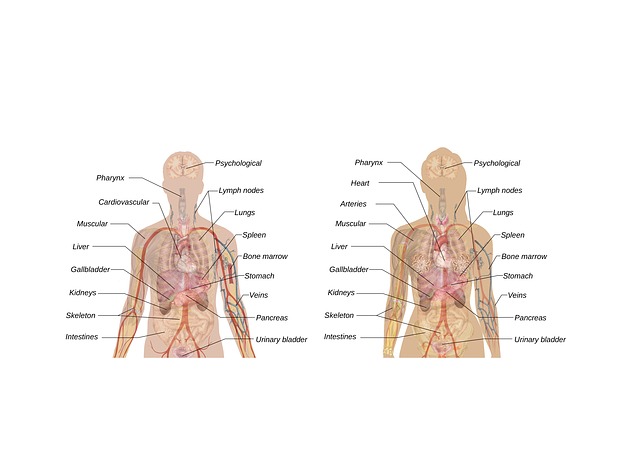
Win-Kui-Noi
Win-Kui-Noi comes from the Perz and, for all intent and purposes, has no God, at least not in the traditional sense. In Win-Kui-Noi, the planet, the solar system its part of, the galaxies, and even the universe are sentient. Think of an animal's body: It is formed by cells, each living in their own right, and contains other lifeforms such as bacteria, some harmful, but many playing a necessary role. These individual lifeforms are combined into a more complex living being. Win-Kui-Noi posits that the same is true for the planet, it is alive and the various plants, animals, and people are part of their biological system. The same way, galaxies are lifeforms composed of, amongst other things, numerous planets, each as individuals yet part of a greater being. And it keeps going.
A critique often levied against Win-Kui-Noi is that no one has ever been able to prove the planet is alive. True adept of Win-Kui-Noi dismisses this without batting an eye, pointing out that the bacteria in their digestive systems probably don't know they are part of something more.
An interesting fact about Win-Kui-Noi is that it doesn't offer many things usually provided by religions. Religions often talk of the afterlife and what happens when we die, but Win-Kui-Noi offers no such answers. Religion often dictates moral rules and guidance, but Win-Kui-Noi is poorly suited for such a purpose. The only advice it can offer is that it would be to the people's advantage to prolong their planet's existence, but that's pretty much a given no matter your beliefs. Besides, from a Win-Kui-Noi's perspective, it is extremely hard to say whether an event is positive or negative. Let's take a war as an example. On the surface, it has to be negative: so much destruction will no doubt weaken the host organism. And yet, when someone trains physically, they tear their muscles causing pain, but in the end, the muscle rebuilds to be stronger. Maybe in the same way, a war is beneficial to a planet in the long run...
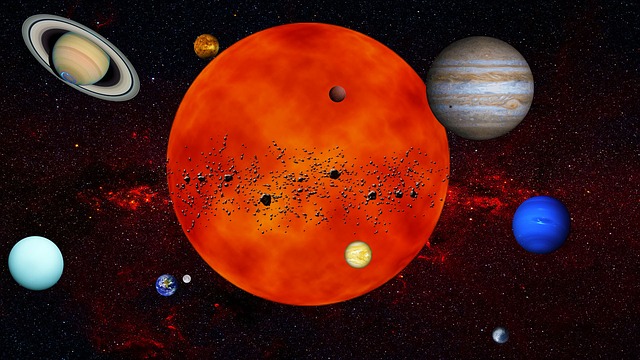
Win-Kui-Noi and other religions
Due to its nature, Win-Kui-Noi is compatible with most religions. After all, any God present is simply part of an even greater biological entity like the rest of the world. Because of this, many Perz adopted a second belief system such as Ulgoronism. This also means that despite the Perz' lesser number, Win-Kui-Noi spread into Brigs and even the Jonilans culture despite their strong affinity for traditions. Since they were so isolated, this didn't become true for Zargs until after the old war when all the races joined into two nations.
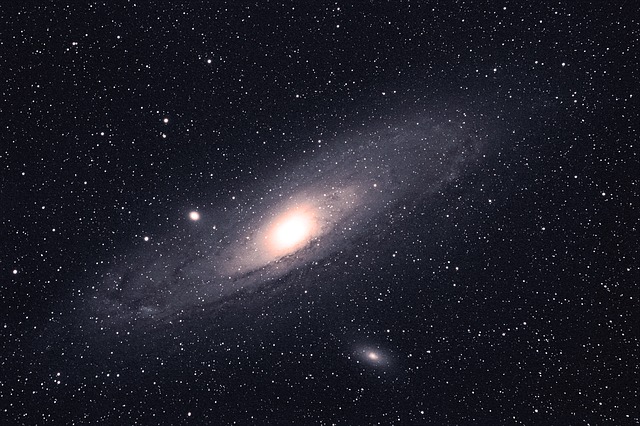
Win-Kui-Noi-Ditrimus
One question Win-Kui-Noi raises yet doesn't provide a definitive answer for is: If people are part of a greater being, what exactly is their role? Most assume they accomplish an essential function for survival, like say the red and white cells in their bodies. Through the years, another possibility spread. Looking at the devastation brought by their species, such as pollution and conflicts, some wondered if perhaps people are a disease killing their host. Such ideas were labeled Win-Kui-Noi-Ditrimus, though not of the followers' choosing. Ditrimus is a word from a dead language that had a large influence on a modern one. Its meaning would be more or less equivalent to misanthropy. While this accurately describes a significant portion of the Win-Kui-Noi-Ditrimus believers, most consider the name inaccurate and unfair. They don't hate people, or themselves, rather they accept the fact that they are a disease and, as such, have their own role to fulfill for better or worse. Win-Kui-Noi-Ditrimus was a fringe religion with few followers until the old war. The devastation caused then brought a sudden vague of popularity to Win-Kui-Noi-Ditrimus, particularly amongst the Timanites.